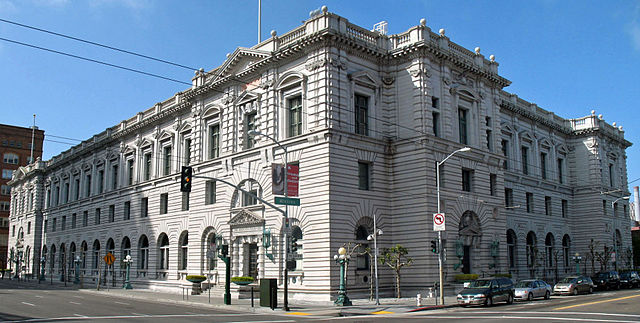
In October, WeMAR hosted County Supervisor’s Hickman and Gallardo. One of the questions I asked was in reference to the Martin v. City of Boise case. The question was: Because of the Court finding in favor of the Plaintiffs, do local governments need to think about their homeless policy and does the decision represent a threat to local government sovereignty and decision-making authority?
On September 4, 2018, the 9th Circuit Court of Appeals 3 judge panel filed their decision on Martin v. City of Boise case.
This case involves the claims of six homeless residents of Boise, Idaho. The six claimed that their citations under the city’s Camping and Disorderly Conduct Ordinances violated the 8th Amendment prohibition on cruel and unusual punishment.
Amendment VIII
Excessive bail shall not be required, nor excessive fines imposed, nor cruel and unusual punishments inflicted.
Not only did the plaintiffs seek damages, but they also wanted to preclude the city from enforcing the ordinance.
The city ordinance included a provision that homeless sleeping on public property could not be cited if the area shelters were full. The panel pointed out in its review that individuals could still be turned away for other reasons such as breaking shelter rules or exceeding the shelter’s stay limits. The panel held the 8th Amendment prohibited enforcement of the ordinance because of the government’s false premise that the homeless had a choice. The shelters in Boise suspend their stay limits during winter.
Judge Berzon stated in his opinion:
We consider whether the Eighth Amendment’s prohibition on cruel and unusual punishment bars a city from prosecuting people criminally for sleeping outside on public property when those people have no home or other shelter to go to. We conclude that it does.
Two of the plaintiffs asked for retrospective and prospective relief for violating the ordinance, meaning they wanted damages for the violations they were already cited for and future violations of the ordinance they anticipated.
Reading through the review of plaintiffs’ statements it appears they did have choices. One man entered the privately run religious based emergency shelter, stayed for the maximum number of days, and declined to enter the long-term program because of his religious beliefs. He chose to sleep outside for the next 30 days until he could enter the shelter emergency program again.
Part of the Boise ordinance is a Shelter Protocol. Shelters call into the Police Department each night to let them know if the shelter is full. One of the shelters has a policy of never turning anyone away because of lack of space.
One of the main complaints of the Plaintiffs was that the shelter programs were run by religious based organizations. In fact, the intake form at one shelter had a religious phrase at the bottom of the form.
One of the most amazing descriptions was from one of the Plaintiffs who no longer lives in Boise, but travels there several times a year to visit his son. He complained that he may in the future not have shelter because he may attempt to check in later than the shelter is open and his back up shelter of choice may be full.
Here is the conclusion of the 3-judge panel:
For the foregoing reasons, we AFFIRM the judgment of the district court as to the plaintiffs’ requests for retrospective relief, except as such claims relate to Hawkes’s July 2007 citation under the Camping Ordinance and Martin’s April 2009 citation under the Disorderly Conduct Ordinance. We REVERSE and REMAND with respect to the plaintiffs’ requests for prospective relief, both declaratory and injunctive, and to the plaintiffs’ claims for retrospective relief insofar as they relate to Hawke’s July 2007 citation or Martin’s April 2009 citation.10
So in the end, homeless who choose to be homeless, can do as they wish. Their choice cannot be restricted by local ordinance, or apparently any law. This opens up an interesting question, can local municipalities limit in any way an individual’s use and occupancy of public property?
In the meantime, I am seeing cities all over Arizona place their homeless policy on the agenda for discussion. If you are concerned about your community’s homeless policy, then contact your local officials, read the material and court cases, discuss with them your concerns, and consider the logical extension of the case.
Are there differences between those who are homeless due to unfortunate circumstances, mental health issues, or physical health issues, who need a helping hand? and those who choose homelessness as a lifestyle?
Is there a social contract? If there is a social contract, what are the individual’s responsibility to themselves and to others in the community? What is the communities responsibilities to its individuals?
I think this will bring about interesting and complex conversations on limited government, the rights of residents to ban together through their elected officials to bring order to their community, the rights of private organizations to have rules, the responsibility one takes when choosing to not avail themselves of opportunities, and eventually pit the rights of one individual against the responsibility and rights of another.
